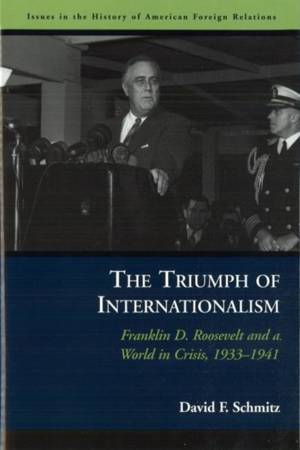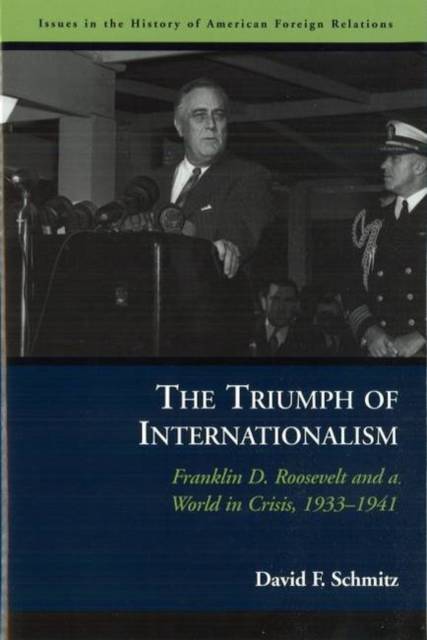
Je cadeautjes zeker op tijd in huis hebben voor de feestdagen? Kom langs in onze winkels en vind het perfecte geschenk!
- Afhalen na 1 uur in een winkel met voorraad
- Gratis thuislevering in België vanaf € 30
- Ruim aanbod met 7 miljoen producten
Je cadeautjes zeker op tijd in huis hebben voor de feestdagen? Kom langs in onze winkels en vind het perfecte geschenk!
- Afhalen na 1 uur in een winkel met voorraad
- Gratis thuislevering in België vanaf € 30
- Ruim aanbod met 7 miljoen producten
Zoeken
The Triumph of Internationalism
Franklin D. Roosevelt and a World in Crisis, 1933-1941
David F Schmitz
€ 27,95
+ 55 punten
Omschrijving
When Franklin D. Roosevelt became president in March 1933, he initially devoted most of his attention to finding a solution to the Great Depression. But the pull of war and the results of FDR's foreign policy ultimately had a deeper and more transformative impact on U.S. history. The Triumph of Internationalism offers a fresh, concise analysis and narrative of FDR's foreign policy from 1933 to America's entry into World War II in 1941. David Schmitz covers the attempts to solve the international economic crisis of the Great Depression, the Good Neighbor Policy in Latin America, the U.S. response to war in Europe and the Pacific, and other topics of this turbulent era. Schmitz describes Roosevelt as an internationalist who set out to promote U.S. interests abroad short of direct intervention. He tried to make amends for past transgressions with the nation's southern neighbors, eventually attempted to open and promote international trade to foster economic growth, and pursued containment policies intended to halt both the Japanese threat in the Pacific through deterrence and German aggression in Europe through economic appeasement. When his policies regarding the Axis powers failed, he began educating the American public about the dangers of Axis hegemony and rearming the nation for war. This effort required a profound shift in the American mind-set, given the prevailing isolationism, the disillusionment with America's involvement in World War I, and the preoccupation with domestic problems. A less powerful president would likely have failed, or perhaps not even attempted, to alter the prevailing public opinion. FDR revived American internationalism and reshaped the public's understanding of the national interest and defense. Roosevelt's policies and the outcome of World War II made the United States a superpower without equal.
Specificaties
Betrokkenen
- Auteur(s):
- Uitgeverij:
Inhoud
- Aantal bladzijden:
- 174
- Taal:
- Engels
- Reeks:
Eigenschappen
- Productcode (EAN):
- 9781574889314
- Verschijningsdatum:
- 1/09/2007
- Uitvoering:
- Paperback
- Formaat:
- Trade paperback (VS)
- Afmetingen:
- 150 mm x 226 mm
- Gewicht:
- 226 g

Alleen bij Standaard Boekhandel
+ 55 punten op je klantenkaart van Standaard Boekhandel
Beoordelingen
We publiceren alleen reviews die voldoen aan de voorwaarden voor reviews. Bekijk onze voorwaarden voor reviews.









